Filter by
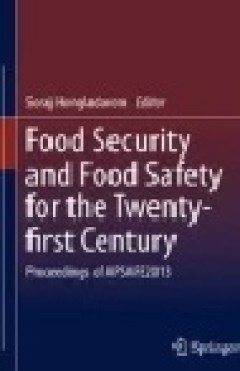
Food Security and Food Safety for the Twenty-First Century
This book is a collection of selected papers that were presented at the First International Conference of the Asia-Pacific Society for Agricultural and Food Ethics (APSAFE 2013), which was held at Chulalongkorn University from November 28 – 30, 2013. The papers are interdisciplinary, containing insights into food security and food ethics from a variety of perspectives, including, but not limi…
- Edition
- -
- ISBN/ISSN
- 978-981-287-417-7
- Collation
- XI, 333 hlm.
- Series Title
- -
- Call Number
- -

Medicinal and Aromatic Plants of the World
Medicinal and aromatic plants (MAPs) have accompanied mankind from its very early beginnings. Their utilization has co-evolved with homo sapiens itself bringing about a profound increase in our scientific knowledge of these species enabling them to be used in many facets of our life (e.g. pharmaceutical products, feed- and food additives, cosmetics, etc.). Remarkably, despite the new renaissanc…
- Edition
- 1
- ISBN/ISSN
- 978-94-017-9809-9
- Collation
- VIII, 460
- Series Title
- Medicinal and Aromatic Plants of the World
- Call Number
- -
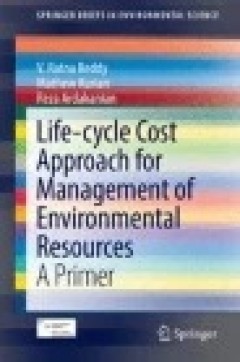
Life-cycle Cost Approach for Management of Environmental Resources: A Primer
This book demonstrates the application of Life-cycle Cost Approach (LCCA) in the management of infrastructure and other investment projects in the context of developing countries. The main goal is to identify potential opportunities for the adoption LCCA in developing countries, with the help of case studies and best practices. The editors observe that developing countries are plagued with poor…
- Edition
- -
- ISBN/ISSN
- 978-3-319-06287-7
- Collation
- -
- Series Title
- -
- Call Number
- -
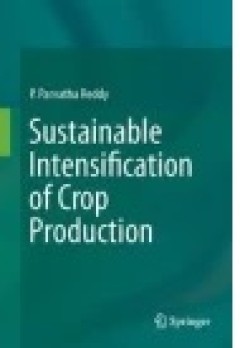
Sustainable Intensification of Crop Production
The green revolution (by using high-yielding crop varieties, mono-cropping, fertilization, irrigation, and pesticides) has led to enormous gains in food production and improved world food security. In many countries, however, intensive crop production has had negative impacts on production, ecosystems and the larger environment, putting future productivity at risk. In order to meet the projecte…
- Edition
- -
- ISBN/ISSN
- 978-981-10-2702-4
- Collation
- XXIV, 405
- Series Title
- -
- Call Number
- -
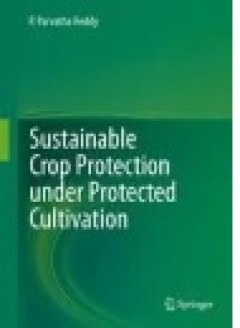
Sustainable Crop Protection under Protected Cultivation
This book focuses on pests (insect and mite) and diseases (fungal, bacterial, viral and nematode) in protected horticulture (fruits, vegetables and ornamentals) using physical, cultural, chemical, biological, host resistance, and integrated methods. It opens with chapters describing the setting in which integrated pest and disease control operates, i.e., the greenhouse and its environment. Subs…
- Edition
- -
- ISBN/ISSN
- 978-981-287-952-3
- Collation
- XXX, 434
- Series Title
- -
- Call Number
- -
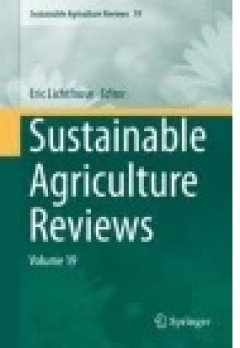
Sustainable Agriculture Reviews
This book features articles that analyze current agricultural issues and knowledge. It also proposes novel, environmentally friendly solutions that are based on integrated information from such fields as agronomy, soil science, molecular biology, chemistry, toxicology, ecology, economics and the social sciences. Coverage examines ways to produce food and energy in a sustainable way for humans …
- Edition
- Volume 19
- ISBN/ISSN
- 978-3-319-26777-7
- Collation
- VI, 399
- Series Title
- Sustainable Agriculture Reviews
- Call Number
- -
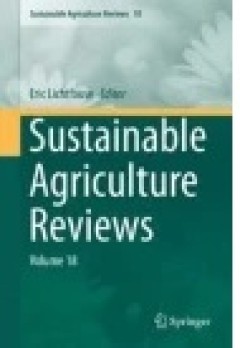
Sustainable Agriculture Reviews
This book features review articles that analyze current agricultural issues and knowledge. It also proposes novel, environmentally friendly solutions that are based on integrated information from such fields as agroecology, soil science, molecular biology, chemistry, toxicology, economics and the social sciences. Coverage examines ways to produce food and energy in a sustainable way for huma…
- Edition
- Volume 18
- ISBN/ISSN
- 978-3-319-21629-4
- Collation
- VI, 319
- Series Title
- Sustainable Agriculture Reviews
- Call Number
- -
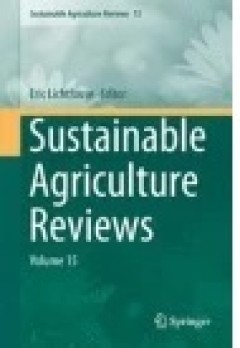
Sustainable Agriculture Reviews
Sustainable agriculture is a rapidly growing field aiming at producing food and energy in a sustainable way for humans and their children. Sustainable agriculture is a discipline that addresses current issues such as climate change, increasing food and fuel prices, poor-nation starvation, rich-nation obesity, water pollution, soil erosion, fertility loss, pest control and biodiversity depletion…
- Edition
- Volume 17
- ISBN/ISSN
- 978-3-319-16742-8
- Collation
- VI, 366
- Series Title
- Sustainable Agriculture Reviews
- Call Number
- -
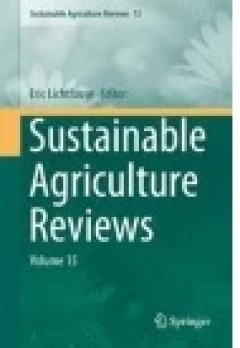
Sustainable Agriculture Reviews
Sustainable agriculture is a rapidly growing field aiming at producing food and energy in a sustainable way for humans and their children. It is a discipline that addresses current issues: climate change, increasing food and fuel prices, poor-nation starvation, rich-nation obesity, water pollution, soil erosion, fertility loss, pest control and biodiversity depletion. This series gathers review…
- Edition
- -
- ISBN/ISSN
- 978-3-319-09132-7
- Collation
- IX, 407
- Series Title
- Sustainable Agriculture Reviews
- Call Number
- -

The Tomato Genome
This book describes the strategy used for sequencing, assembling and annotating the tomato genome and presents the main characteristics of this sequence with a special focus on repeated sequences and the ancestral polyploidy events. It also includes the chloroplast and mitochondrial genomes. Tomato (Solanum lycopersicum) is a major crop plant as well as a model for fruit development, and the av…
- Edition
- -
- ISBN/ISSN
- 978-3-662-53389-5
- Collation
- -
- Series Title
- -
- Call Number
- -
 Computer Science, Information & General Works
Computer Science, Information & General Works  Philosophy & Psychology
Philosophy & Psychology  Religion
Religion  Social Sciences
Social Sciences  Language
Language  Pure Science
Pure Science  Applied Sciences
Applied Sciences  Art & Recreation
Art & Recreation  Literature
Literature  History & Geography
History & Geography